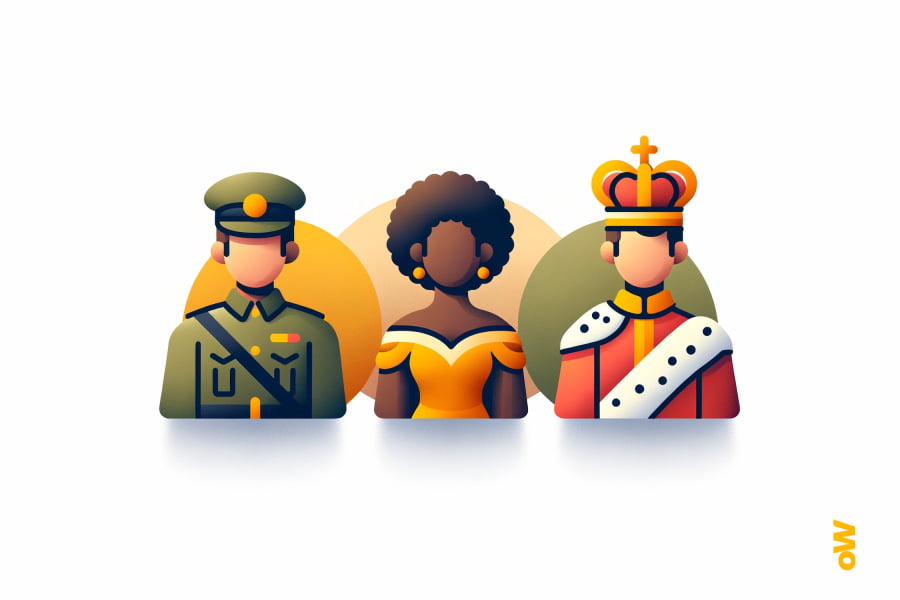Quiz: Do I Like Her?

Picture this: you’re sitting in a café, and across from you – she sits. Your heart performs strange somersaults, thoughts get tangled, and suddenly coffee seems like the most fascinating object in the universe. Sound familiar? Millions of people daily find themselves asking: “Do I really like her, or is this just… something else?” It’s precisely for such moments of existential uncertainty that the “Do I Like Her?” quiz was created – a tool for self-discovery in the labyrinth of romantic feelings.
What is Romantic Attachment and How to Recognize It?
Romantic attachment isn’t just butterflies in your stomach, though those count too. From a neurobiological perspective, it’s an entire symphony of chemical reactions, with dopamine, serotonin, and oxytocin as the main conductors. When you fall in love, your brain literally becomes an addict, craving another dose of your object of adoration’s presence.
Psychologist Dorothy Tennov coined the term “limerence” to describe that very state of obsessive infatuation, when you check your phone every 30 seconds waiting for a message, and a chance encounter in the hallway becomes the event of the day. But how do you distinguish genuine romantic attachment from simple sympathy or, even trickier, from projections of your own unmet needs?
Key markers of romantic attachment include:
- Physiological reactions: accelerated heartbeat, sweaty palms, “butterflies in the stomach” – these aren’t metaphors, but real somatic manifestations of sympathetic nervous system activation.
- Cognitive changes: intrusive thoughts about the object of attachment occupy, according to research, 60% to 95% of waking time during the acute phase of infatuation.
- Behavioral patterns: seeking physical proximity, copying gestures and mannerisms (mirroring), increased attention to appearance in the object’s presence.
- Emotional dependency: sharp mood swings depending on interaction with the attachment object, what psychologists call “emotional roller coasters.”
What is This Quiz About?
The “Do I Like Her?” quiz isn’t another glossy magazine test with questions like “Do you often think about her?” This is a tool based on contemporary research in attachment psychology, nonverbal communication, and cognitive processes.
The quiz methodology rests on three pillars:
- Bowlby-Ainsworth attachment theory, adapted for adult romantic relationships
- Nonverbal signal research by Albert Mehrabian and Paul Ekman
- Contemporary neurobiological data on romantic attachment formation mechanisms
The quiz analyzes not only conscious feelings but also subconscious reactions that often speak louder than a thousand words. It helps untangle the complexities of your own emotions, separating the wheat of true attachment from the chaff of fleeting infatuation.
Signs Behind the Quiz Questions
Every quiz question is a window into the subconscious, based on decades of romantic behavior research. From facial micro-expressions to changes in speech patterns – science has identified key markers that reveal true feelings even when the mind tries to deny them. Let’s examine the main signs upon which your romantic feelings diagnosis is built.
Nonverbal Synchronization
Have you ever noticed how couples in love unconsciously copy each other’s poses? This phenomenon is called “interpersonal synchrony.” Research shows that with romantic interest, people automatically begin mirroring gestures, poses, and even breathing rhythms of their attachment object. The quiz evaluates how prone you are to such synchronization.
Selective Attention
The cocktail party effect in a romantic context: in a noisy room, you unerringly pick out that special person’s voice. The brain in love works like a radar tuned to one frequency. Quiz questions reveal the degree of your “tuning” to a specific person.
Idealization and Halo Effect
Infatuation temporarily switches off critical thinking. The object’s flaws either go unnoticed or seem like charming peculiarities. “She’s late? What a creative nature!” The quiz helps determine the degree of idealization and separate real feelings from rose-colored glasses.
Physiological Markers
Dilated pupils when looking at the attachment object – not a myth, but scientific fact. The quiz includes questions about physical reactions: does your pulse quicken, does a slight tremor appear, does your voice timbre change in this person’s presence?
Territorial Behavior
Jealousy and possessive instincts are evolutionarily conditioned markers of romantic attachment. The quiz delicately explores how inclined you are to “guard territory” regarding your object of interest.
Time and Energy Investment
Willingness to spend resources (time, attention, energy) is a reliable indicator of feeling depth. The quiz analyzes your priorities and readiness for emotional investment.
The Difference Between Infatuation and Love
Infatuation is fireworks, love is a fireplace. The first blinds and burns, the second warms and gives light. But how do you understand where on the spectrum your feelings lie?
Infatuation is characterized by:
- Intensity and emotional instability
- Focus on physical attraction and idealization
- Obsessiveness and anxiety
- Relatively short period (3 months to 2 years)
- High dopamine and low serotonin levels
Love differs through:
- Emotional stability and depth
- Acceptance of partner’s flaws
- Sense of security and comfort
- Long-term perspective
- Predominance of oxytocin and vasopressin
The paradox is that infatuation often masquerades as love, while true love can seem too calm and “boring” against the backdrop of turbulent passions. The ancient Greeks didn’t distinguish seven types of love for nothing – from passionate eros to deep agape.
Contemporary neuroscience confirms: infatuation and love activate different brain areas. Infatuation “switches on” reward and motivation centers (like cocaine use), while love engages areas responsible for long-term attachment and social bonds.
Conclusion
Understanding your own feelings isn’t a sign of weakness, but a manifestation of emotional maturity. The “Do I Like Her?” quiz is a compass in the ocean of emotions, helping find a course to the shores of awareness. Because sometimes the most difficult question isn’t “Do I like her?” but “Am I ready to honestly answer this question?”
In the end, as Pascal wrote, “the heart has reasons that reason knows nothing of.” But this doesn’t mean we can’t try to decipher them. It’s precisely for this that such self-knowledge tools exist – to make the invisible visible, and the incomprehensible slightly clearer.
Questions Overview
- Send her a funny meme to cheer her up
- Ask detailed questions about what's wrong
- Give her space but let her know you're there
- Feel bad but not know what to say
- It races and you feel an urge to comfort her immediately
- It stays normal but you feel concerned
- It skips a beat and you freeze, unsure what to do
- It pounds heavily and you want to fix whatever's wrong
- Immediately - you notice everything about her
- Within a few days when someone mentions it
- Pretty quickly, and you wonder if you should compliment it
- You notice but pretend you don't to avoid being obvious
- Check if she's coming before confirming your attendance
- Hope she'll be there but go either way
- Don't think about it much
- Want her there but try not to make it obvious
- Already know them because you've been paying attention
- Make a mental note to check them out later
- Engage in the conversation but forget about it later
- Listen to their entire discography that night
- Her laugh is adorable
- She has a good sense of humor
- I wish I could make her laugh like that
- Why do I care so much about her reaction?
- Like it within seconds without even fully looking at it
- Study every detail before deciding whether to like it
- Like it if it's genuinely good content
- Save it to look at again later
- Give her your best pen and tell her to keep it
- Hand her whatever pen is closest
- Suddenly become very aware of which pen you're giving her
- Give her a pen but wonder why this interaction feels significant
- Wonder if there's room for you in them
- Feel happy for her ambitions
- Get butterflies thinking about her dreams
- Feel conflicted about what her plans mean for you
- Stay focused on her the entire time
- Wander between her and others normally
- Keep darting to her then away when she might notice
- Try to look elsewhere but keep returning to her
- What kind of soup she might like
- To text her 'feel better soon'
- Whether it would be weird to check on her
- How to help without seeming too invested
- Immediately offer your jacket without thinking
- Suggest she should've brought a jacket
- Want to offer your jacket but hesitate
- Gauge if offering your jacket would be too forward
- Naturally gravitate to sit near her
- Sit wherever is most convenient
- Overthink the perfect distance - not too close, not too far
- Want to sit close but choose somewhere else to avoid suspicion
- Genuine excitement that matches or exceeds hers
- Happy for her like you would be for any friend
- Thrilled but trying to play it cool
- Mixed feelings - happy but wondering what it means for you
- Already planning when you'll see her next
- Say bye and move on with your day
- Replay the entire interaction in your head afterward
- Feel a strange emptiness when she leaves






